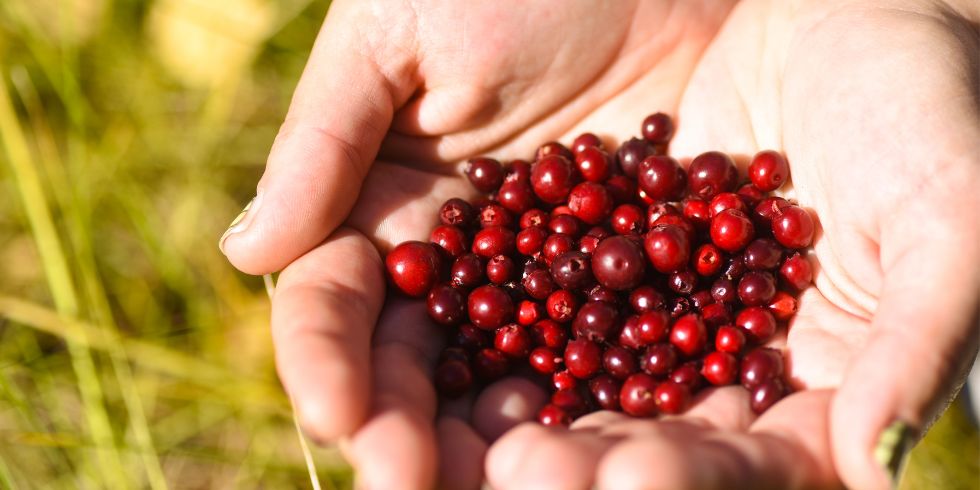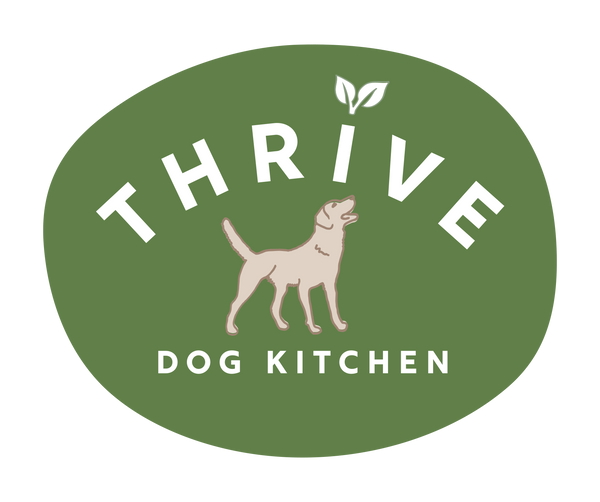
Cranberries for Dogs: The Health Benefits
Share
Many fruits and vegetables offer beneficial compounds that will enhance your dog’s overall health. Cranberries are one such fruit. While these little red berries are nearly 90% water, they are packed full of important nutrients, including vitamins, minerals and phytonutrients, that will support your dog’s health. Here’s why you should add cranberries into your dog’s diet.
Nutrients found in cranberries
Vitamins
- Vitamin C - promotes a healthy immune system, joints and cartilage.
- Vitamin E - natural anti-oxidant that fights free radicals, boosts the immune system and promotes healthy skin and coat.
- Vitamin K1- essential for blood clotting, bone formation and protein synthesis
Minerals
- Manganese - a micro-mineral that is essential for lipid and carbohydrate metabolism, bone development and reproduction.
Phytonutrients
- Dietary Fibre - helps with digestion, bowel regularity, weight loss and blood sugar control. It has a positive impact on the gastrointestinal system.
- Quercetin - a plant compound that contains antioxidants, anti-inflammatory properties, helps regulate the immune system and some studies show that it may have benefits on neurodegenerative disease, like dementia. (link to blog post)
- Anthocyanins - a polyphenol, one of the 4 major antioxidant groups in plants, that supports immune, gut, heart, brain health and more. They give cranberries their bright red colour.
- Proanthocyanidins - another type of polyphenol that helps fight against urinary tract infections (UTIs). Studies have shown that the antibacterial properties of proanthocyanidins in cranberries can stop certain bacteria from coloinising in the gut.
- D-mannose - a sugar that is naturally found in cranberries and other fruits. It helps prevent E.coli bacteria from adhering to the bladder walls, while maintaining optimal blood sugar levels. It’s an added layer of protection for the bladder and reduces the chance of UTIs.
Benefits of Cranberries for Dogs
- Fight UTIs
- Support Cognition
- Potential for cancer-fighting properties
- Anti-inflammatory properties
- May help protect kidneys
How Much to Feed
Fruits and vegetables should be fed in small quantities. The recommended range is between 5% to 25% of your dog’s daily feeding requirements. Of that only 5% should be fruit. For example, if you feed your dog 25% fruits and vegetables, 20% would be vegetables and 5% would be fruits.
How to Feed Cranberries to Dogs
Cranberries make for quick grab and go treats. You will find them in frozen food aisle of most grocery stores. Did you know that there are cranberries grown in New Zealand? Cranberries Westland are the only New Zealand growers.
As cranberries have a tart and tangy taste, your dog might need a bit of convincing to eat them. Or, if they’re like our girl, Jessie, they’ll eat them in whatever form they’re given.
For optimal absorption puree the cranberries. To hide their tangy flavour mix with a bone broth or mix directly into a bit of fresh meat.
Our limited edition seasonal Winter Blend is an excellent option to incorporate cranberries into your dog’s meals. The cranberries are mixed with pureed beetroot and red cabbage, along with grass-fed beef bone broth. In adding a spoonful of Winter Blend on top of their meal, they will reap the benefits that cranberries have to offer all while enjoying the meaty taste of the bone broth.
Cautions with Cranberries for Dogs
Cranberry Juice and Jam
Avoid feeding your dog cranberry juice and cranberry jam, as they are too high in sugar and will provide minimal health benefits to your dog.
UTIs
If you suspect your dog has a UTI visit your vet. While we prefer minimal use of antibiotics, a short dose of them may provide fast and effective relief for your dog. Homeopathy and cranberry supplements will provide additional support to your dog, but may not resolve the UTI. Adding in a probiotic to counteract the effects of the antibiotics will also protect your dog’s gut.
Kidneys
Cranberries are considered a risk factor for kidney stones because they contain oxalates which can cause crystals and stones. If your dog has a history of kidney stones, it is recommended to avoid cranberries or foods that contain cranberries.
Cranberries have a long history of providing health benefits to humans. We’re now seeing those benefits extend to our beloved pets. Yes, it is a great idea to add cranberries onto your list of foods to feed your dog.
